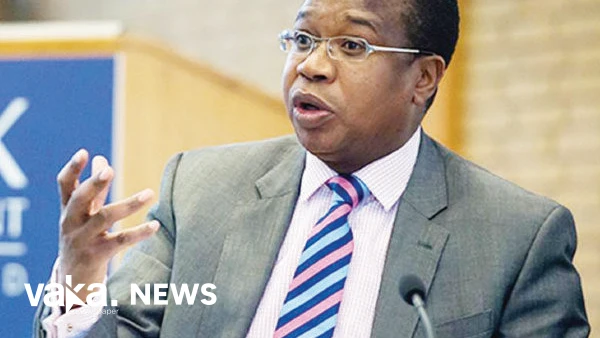Economic, governance and property rights reforms get top priority
- Category: General

- By Dion Kajokoto
Finance, Economic Development and Investment Promotion Minister, Professor Mthuli Ncube, says Government will prioritise economic, governance and property rights reforms to increase agricultural production in the country.
Minister Ncube emphasized that safeguarding property rights is a crucial factor in helping private sector finance to flow into agriculture and added that these measures are necessary to establish an environment that attracts investment and fosters growth. In a recent commentary on the African Development Bank's most recent Macroeconomic Performance and Outlook (MEO) of the continent, which was published last week, Minister Ncube stated, "Internally, the country will focus on economic and governance reforms and reforms around property rights to increase agricultural production."
Extreme weather and climatic shocks, according to Minister Ncube, are impeding economic growth and agricultural productivity. He pointed out that agricultural failures brought on by climate change have a big knock-on effect because the sector is a major engine of the regional economy. Minister Ncube stressed the significance of "climate-proofing" agriculture and linked the country's predicted slower economic growth to climate shocks affecting the larger Southern African area.
"Zimbabwe anticipates slower growth as a result of local climate shocks." Climate-proofing agriculture is essential since it is the main driver of economic growth in Southern African nations, the speaker stated. The MEO analysis did point out, however, that up to 41 countries—including Zimbabwe—will experience 3.8% economic growth in 2024, with growth in 13 of those countries expected to exceed 1% from 2023.
Eleven of the twenty economies developing at the quickest rate in the world are likely to be in Africa in 2024; the continent's real gross domestic product (GDP) is predicted to average 3.8 percent in 2024 and 4.2 percent in 2025. According to the research, this is greater than the estimated global averages of 2.9% and 3.2%. After Asia, the African continent is expected to continue developing at the second-fastest rate.
Niger (11,2%), Senegal (8,2%), Libya (7,9%), Rwanda (7,2%), Cote d'Ivoire (6,8%), Ethiopia (6,7%), Benin (6.4%), Djibouti (6.2%), Tanzania (6,1%), Togo (6%) and Uganda (6%) are the top 11 African nations predicted to see strong economic performance forecasts. AfDB President Dr. Akinwumi Adesina stated, "15 African countries have posted output expansions of more than 5 percent despite the challenging global and regional economic environment," advocating for larger financing pools and a number of policy initiatives to further promote Africa's growth.
In addition to the current African Economic Outlook (AEO), which focuses on important emergent policy problems pertinent to the continent's growth, Africa's Macroeconomic Performance and Outlook is a biannual publication produced in the first and third quarters of each year. Amidst dynamic global economic trends, the MEO report offers an up-to-date, evidence-based evaluation of the continent's recent macroeconomic performance and short-to-medium-term forecast.
The most recent report urges cautious optimism in light of the difficulties presented by regional and global dangers. These risks include political instability, escalating geopolitical tensions, and an increase in regional wars; all of these could impede trade and investment flows and exacerbate inflationary pressures. Dr. Adesina emphasized that the faster-than-anticipated recovery from the epidemic has helped shore up revenue, which has improved fiscal deficits.
“This has led to a stabilisation of the average fiscal deficit at 4,9 percent in 2023, like 2022, but significantly less than the 6,9 percent average fiscal deficit of 2020. The stabilisation is also due to the fiscal consolidation measures, especially in countries with elevated risks of debt distress,” he said.
"Growth in Africa's top-performing economies has benefitted from a range of factors, including declining commodity dependence through economic diversification, increasing strategic investment in key growth sectors, rising both public and private consumption, as well as positive developments in key export markets," said Prof. Kevin Urama, chief economist and vice president of the AfDB, while presenting the report's key findings. "As long as the global economy is robust, disinflation persists, investment in infrastructure projects is buoyant, and progress is sustained on debt restructuring and fiscal consolidation, Africa's economic growth is projected to regain moderate strength."
Minister Ncube commended the report, describing it as "on point" because it captures Zimbabwe's reality. He emphasized its value for economic planning throughout Africa and urged the AfDB to continue being a thought leader in assisting decision-makers in fostering resilience and growth.






